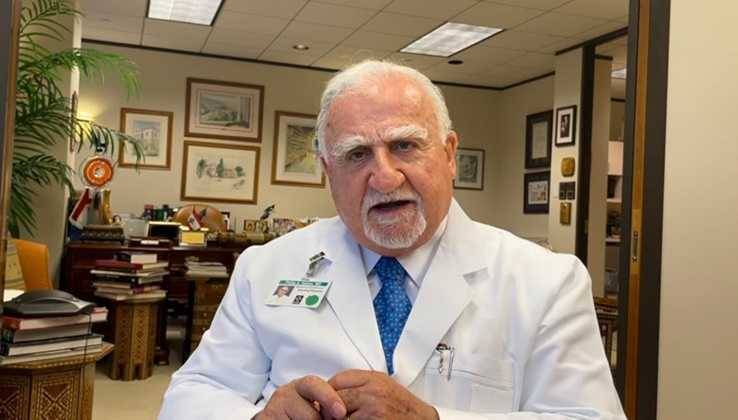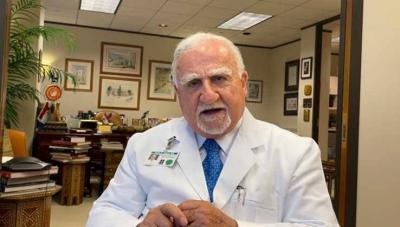On Friday, March 22, 2024, following the video in which Princess Catherine Middleton, the Princess of Wales, spoke about her illness, the American television station NBC requested Professor Philip Salem to comment on the video.
**Question One:** What type of cancer is she suffering from?
Professor Salem responded: Based on what the Princess stated about her surgery being a major operation in the abdomen, it is likely that the cancer was in the stomach or in the colon.
**Question Two:** How do you explain that she was told the illness was not cancerous and then later informed that she had cancer?
The answer: In some cases, the surgeon may believe that the tumor is benign based on what they see with the naked eye. However, microscopic examinations might prove that the tumor is malignant rather than benign. I believe it was a mistake to inform her that the tumor was benign before completing the microscopic and laboratory tests.
**Question Three:** What does it mean that the Princess is currently undergoing chemotherapy, but it is preventive chemotherapy?
The answer: This means that the doctors believe they were unable to remove all of the disease, and that there are likely cancer cells remaining in the body after the operation. If these cells are not treated, they can multiply and the disease could return. This treatment is given to kill the cancer cells that cannot be seen with the naked eye. In scientific terms, we use the term Adjuvant chemotherapy instead of the term the Princess used, which is preventive chemotherapy.
**Question Four:** Is a complete recovery from her illness possible?
The answer: It is difficult to discuss the odds of complete recovery in the Princess's case. However, the initial belief by the doctors that the tumor was benign, as well as the decision to treat her preventively—which implies that part of the tumor remained after surgery and is not visible to the naked eye—leads us to believe that there is a possibility of complete recovery. This is what we hope for, and what everyone who knows her hopes for.
Professor Salem indicates that the possibility of complete recovery is always present, but achieving it depends on several factors, the most important of which are the quality of treatment and the physician's utmost perseverance in reaching it. Cancer does not always mean death. There is always hope, but one cannot achieve complete recovery without making efforts to reach it.




